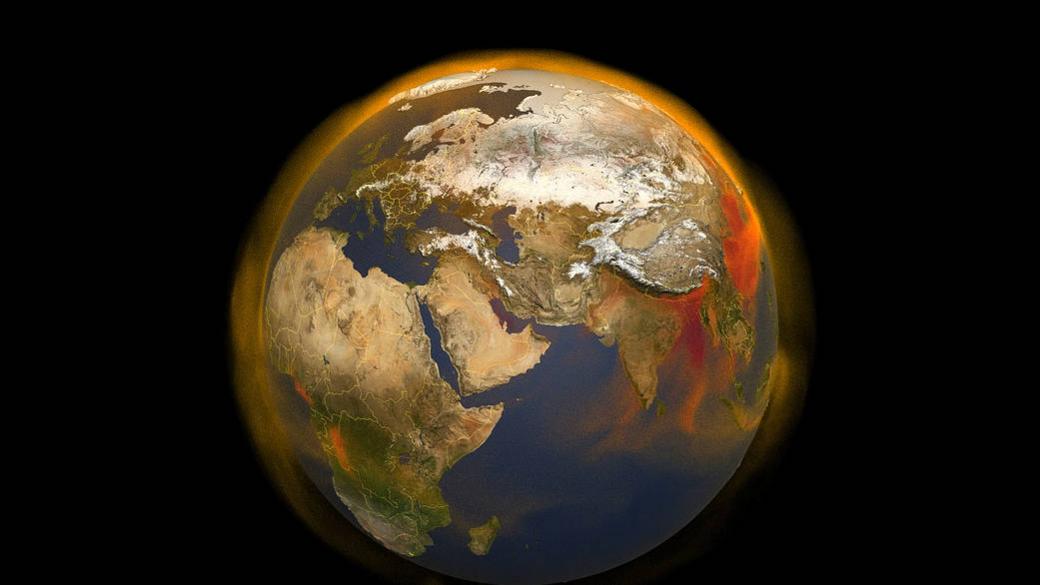Heatwaves and floods: What can extreme weather tell us about climate change?
- Published
- comments
Extreme weather: could climate change be being the recent weather?
What can extreme weather tell us about climate change?
From sweltering heatwaves to devastating floods, the world has experienced a number of extreme weather events in recent years that have had a huge impact on people's lives.
Experts at the Met Office - the UK's national weather service - have said that "many factors can contribute to extreme weather events. Some of these are natural, but we can link others to climate change, driven by human activity."
Later this year, the UK will host a huge meeting called COP26, where leaders from all over the world will come together to make commitments on reducing the emissions that are heating the climate.
Extreme weather and its effect on countries around the world will be a talking point at this year's event.
So how do extreme weather events tell us more about how our climate is changing? And what can be done about it?
How is climate change linked to extreme weather events?
Attribution studies is the name that weather experts give to the process of linking weather events to human-influenced climate change.
So far scientists have published more than 150 attribution studies looking at weather events around the world.
Here are some of the things the Met Office says it has discovered:
Heatwaves - Almost all studies on extreme heat events found that they are becoming more likely and more extreme because of climate change influenced by human actions. The Earth has warmed by about 1.2C already since pre-industrial levels - so that extra heat is added to every naturally-occurring heatwave.
Drought - About half of the studies on drought showed significant human influence.
Extreme rainfall (which can cause flooding) - Many factors contribute to flooding, but an increasing number of studies on extreme rainfall have found that a warming atmosphere caused by climate change makes extreme rainfall more likely.
Tropical storms and hurricanes - This one is complicated, according to the Met Office. There is strong evidence that warming sea temperatures increase the intensity of tropical storms. As well as this, rising sea levels also increase the risk of coastal flooding. However, there may be an overall decrease in the total number of global tropical cyclones.
Climate Anxiety: Five tips to deal with your worries about climate change
Natural climate changes
Weather patterns
Amount of aerosol gases
Greenhouse gas emissions
Sea surface temperature
Topography - The study of land surface
Observations
Source: The Met Office
Attribution studies used to take years to complete, but due to advances in technology, some reports can now take just weeks.
The scientists use virtual climate models based on the information they can get to compare the climate as it is today, with the world as it would be without human-influenced warming.
According to weather experts at the Met office, climate change is expected to increase the strength, impact and frequency of extreme weather events. In other words - future extreme weather events could be worse and happen more often.
The warming of Earth happens because greenhouse gases in the atmosphere trap heat radiating towards space.
One of the biggest ones is carbon dioxide (CO2).
Carbon dioxide is released naturally but humans have increased atmospheric CO2 by more than a third since we began burning fossil fuels like coal and oil.
How can extreme weather impact us in the UK?
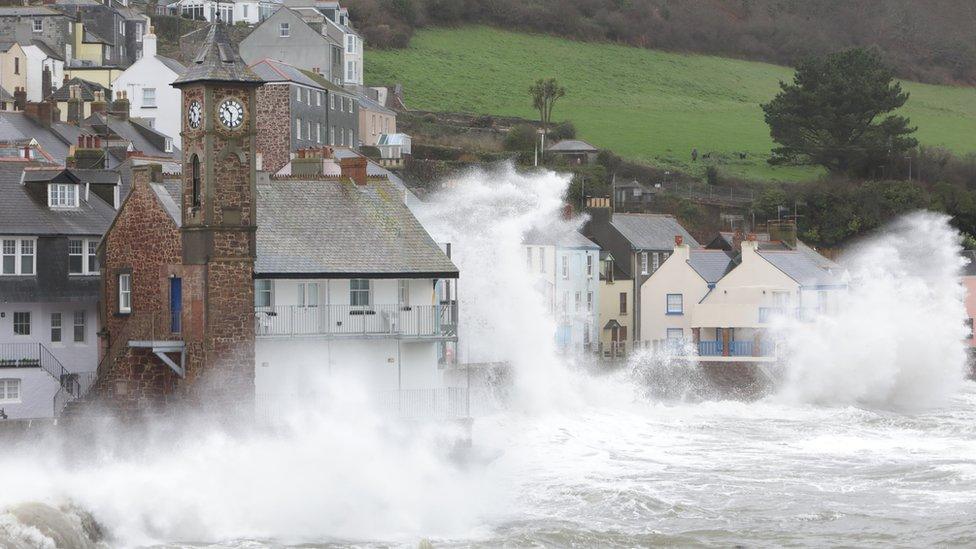
Extreme weather and flooding could be more common in the next decades
A recent report by the Climate Change Committee (CCC) - an independent group of experts who provide the government with advice on the climate crisis - looked into how prepared the UK is to tackle extreme weather changes.
The CCC found that there could be risks of:
Heatwaves - which can cause homes to become very hot inside. This increase in temperature could cause people to become ill, from things like heatstroke or dehydration. Elderly people are most at risk, because they are more vulnerable to the extra heat.
Droughts - happen when there is not enough rain for a long time and are made worse by rising temperatures. Farmers who grow our food can lose crops as the soil dries out, and the sun wilts them.
Damage to peat-bogs - which are wet swampy areas that help to clean our air, by trapping carbon dioxide. They can dry out in high temperatures, releasing the carbon they trapped back into the atmosphere.
Flooding - an increase in rainfall and storms will mean worse flooding in the UK, except when flood defences have been installed.
Storms - can also damage power stations that supply electricity to our homes.
What about the rest of the world?
Newsround Special: Australia - Life after the fires
Extreme weather events can cause massive problems.
Australia experienced the worst bushfire season ever in 2019-2020 with fires blazing for months in large parts of the country.
Climate change increases the risk of the hot, dry weather that is likely to fuel wildfires.
Canada heatwave: Emily tells us what it's like
An international team of climate scientists from the World Weather Attribution network said that the severe heatwaves in US and Canada in June would have been "virtually impossible" without human-influenced climate change.
"We conclude that a one-in-1000-year event would have been at least 150 times rarer in the past," said Sjoukje Philip, from the Royal Netherlands Meteorological Institute.
According to their research, if the world warms by 2C - which could happen in about 20 years' time - the chances of having a heatwave like this one changes from around once every 1,000 years to roughly once every 5-10 years.
Climate scientists were especially concerned by the heatwave in the village of Lytton in Canada.
This is because it broke the previous temperature record by 4.6C - which is much higher than the normal record-breaking temperature, and was way beyond anything predicted.
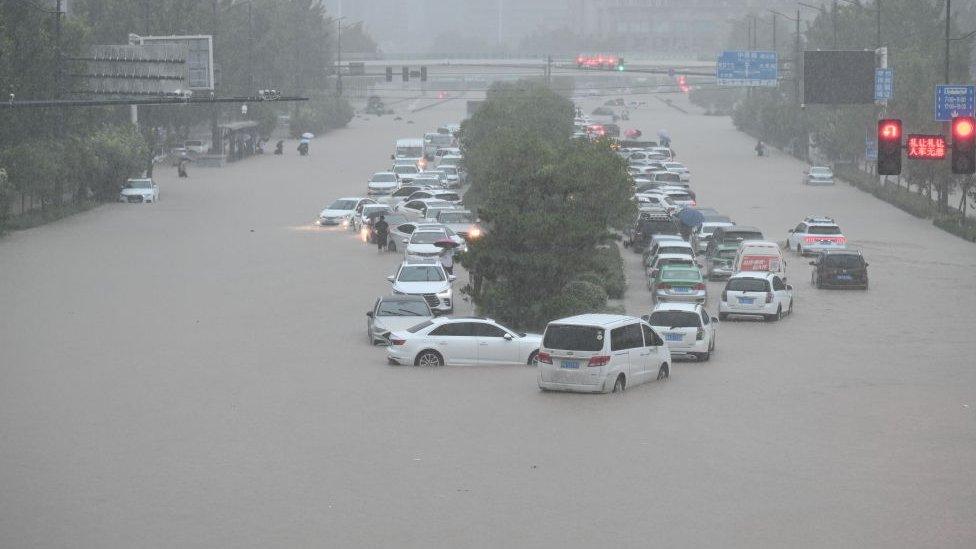
Cars were stranded in flooded roads in China in July 2021
Parts of Europe and Asia experienced major flooding in July, which caused huge problems resulting in thousands of people having to be evacuated.
In Zhengzhou, in the Chinese province of Henan, more than a years' worth of rain fell in just three days.
Many factors contribute to flooding, but a warming atmosphere caused by climate change makes extreme rainfall more likely.
What actions are being taken by world leaders?
De-Graft gave us the low down on what to expect from COP25 in 60 seconds
Later this year, a huge environmental meeting called the COP26 summit will be held in Glasgow, where world leaders will meet to discuss the impact of climate change.
It is the most significant climate event since the 2015 Paris Agreement.
The Paris Agreement was a big international deal by the leaders of 195 countries to tackle climate change.
It says nations must:
• Reduce the amount of harmful greenhouse gasses produced and increase renewable types of energy like wind, solar and wave power
• Keep global temperature increase "well below" 2C (3.6F) and to try to limit it to 1.5C
• Review progress made on the agreement every five years
• Spend $100 billion a year in climate finance to help poorer countries by 2020, with a commitment to further finance in the future.
The effect that extreme weather has had on many countries around the world will be a talking point at the event this year, and many are hoping for more concrete action after some felt "disappointed" at how little was achieved at the previous conference.
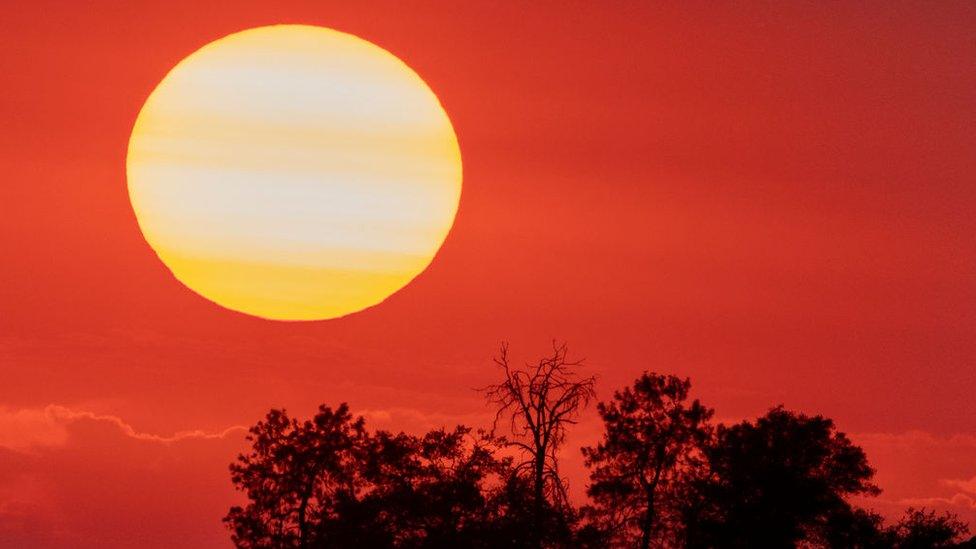
As well as this, the Intergovernmental Panel on Climate Change (IPCC) is preparing to share their most detailed report yet, on the state of global warming since 2013.
The scientists behind the report will go through their findings with representatives from 195 world governments, and experts have said the report will be a "wake-up call".
Many countries are taking steps towards fighting climate change, including increasing the use of renewable energy and reducing the use of fossil fuels, planting more trees, and introducing measures to help reduce the damage extreme weather events can cause.
- Published17 July 2019
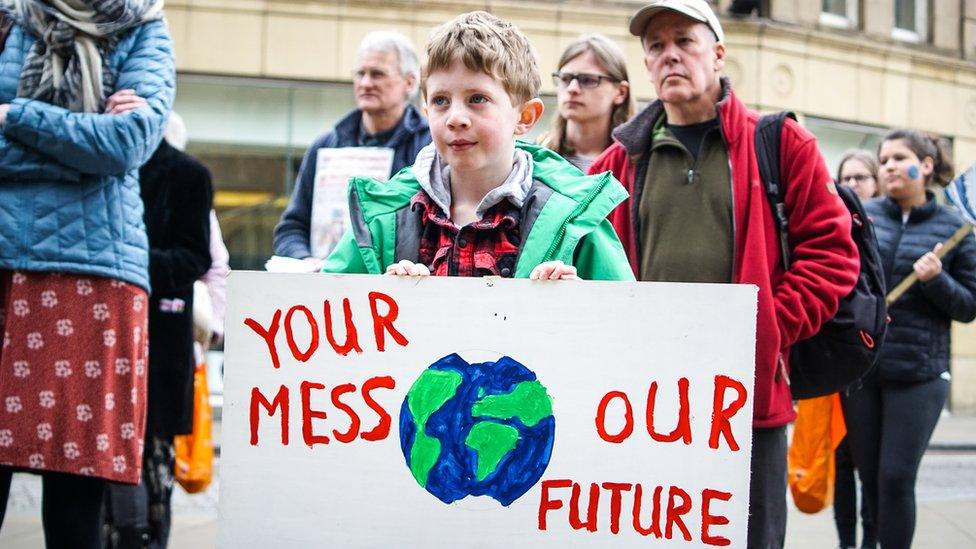
- Published3 March 2020

- Published31 October 2021
